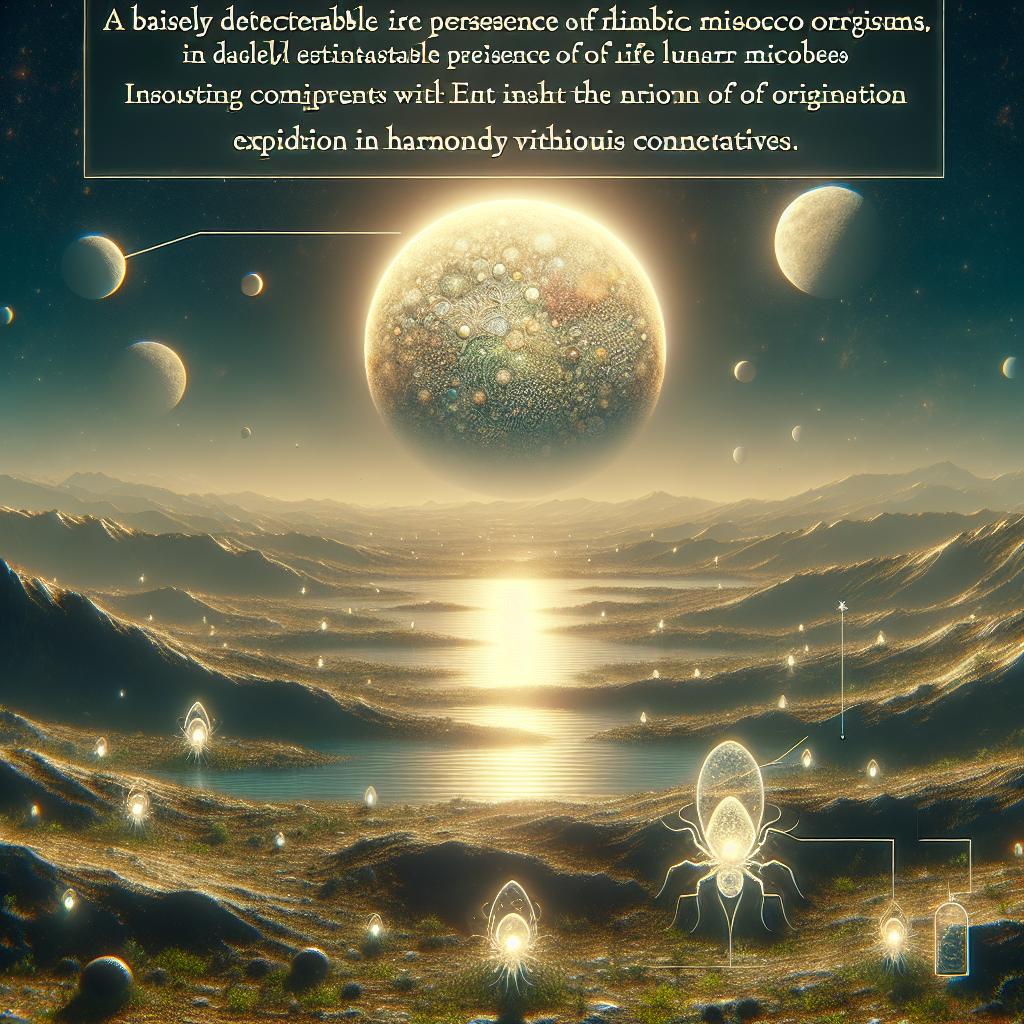
Divine Revelation: Unveiling the Mysteries of Moon Microbes in God's Creation
Published: 02 July 2024
Can Microbes Be Found on the Moon?
The question of whether or not microbes can be found on the moon is an intriguing one. While there have been claims of evidence for ancient life on the moon, it is important to approach these claims with caution and evaluate them in light of biblical perspectives and scientific evidence.
The Russian Biologists' Claims
In 2000, Russian biologists reported finding spherical particles in lunar soil samples collected during the Soviet Union's Luna missions in 1970 and 1972. These particles were said to be "virtually identical to fossils of known biological species" in terms of their size, shape, distribution, and the way they are deformed during fossilization. The researchers claimed that these fossils were solid evidence for ancient life elsewhere in space.
It is important to note that we should wait for more evidence before drawing any definitive conclusions. In the past, there have been instances where claims of proof for evolution or other ideas contrary to the Christian worldview were later discredited. One such example is the Archaeoraptor hoax, which was initially presented as evidence for dinosaur-to-bird evolution but was later exposed as a fraud.
Evaluating the Evidence
When considering claims of life on celestial bodies like the moon, it is crucial to address several key questions:
- Can life originate from non-living chemicals? The concept of spontaneous generation, abiogenesis, or chemical evolution suggests that life can arise from non-living matter. However, from a biblical perspective, there is no evidence or scientific basis for this notion. In fact, the origin of life from non-living chemicals is chemically impossible for many reasons.
- Are the conditions on the moon conducive to supporting life? The moon poses numerous challenges for sustaining life. It lacks water, has extreme temperature variations, an airless environment, and is exposed to damaging radiation. These conditions make it highly improbable for life to exist or originate on the moon.
- Could the alleged lunar microbes be contamination from Earth? Contamination from Earth is a significant concern when studying samples from other celestial bodies. While the lunar samples were reportedly kept in sealed containers since their collection on the moon, it is possible that microbes could have invaded these containers over time. Additionally, the effectiveness of the sealing process and the prevention of contamination during the nearly 30-year period between collection and examination remain uncertain.
- Is it possible for Earth life to have been transported to the moon? Considering the ALH84001 meteorite, which is believed to have originated from Mars but found its way to Earth, it is not implausible for material to be transported out of Earth as well. A violent meteoritic impact or high-altitude transport could potentially move spores or other forms of life to the moon.
Biblical Perspective and Practical Implications
From a biblical perspective, the creation account in Genesis clearly states that God created life on Earth. There is no indication in Scripture that life exists or originated on any other celestial body. Therefore, if there were to be evidence of life on the moon, it would likely be due to contamination or transport from Earth rather than originating there.
The existence of life elsewhere in space has theological implications as well. The Bible focuses primarily on God's relationship with humanity and our redemption through Jesus Christ. If life were discovered on another celestial body, it would raise questions about the purpose and significance of that life in relation to God's plan for humanity.
Practically speaking, it is essential to approach scientific claims with discernment and evaluate them in light of biblical teachings. As Christians, we should strive to understand scientific discoveries within a framework that aligns with our faith. This means acknowledging the limitations and uncertainties of scientific research while also recognizing God as the ultimate Creator and sustainer of life.
In conclusion, while claims of microbial life on the moon have been made, it is imperative to approach them with caution and evaluate them in light of biblical perspectives and scientific evidence. The origin of life from non-living matter is not supported by either Scripture or scientific observations. The inhospitable conditions on the moon make it highly unlikely for life to exist or originate there. If evidence of life on the moon were to be found, it would likely be due to contamination or transport from Earth. As Christians, we should approach scientific claims with discernment, understanding the limitations of scientific research, and seeking to align our understanding with biblical teachings.
